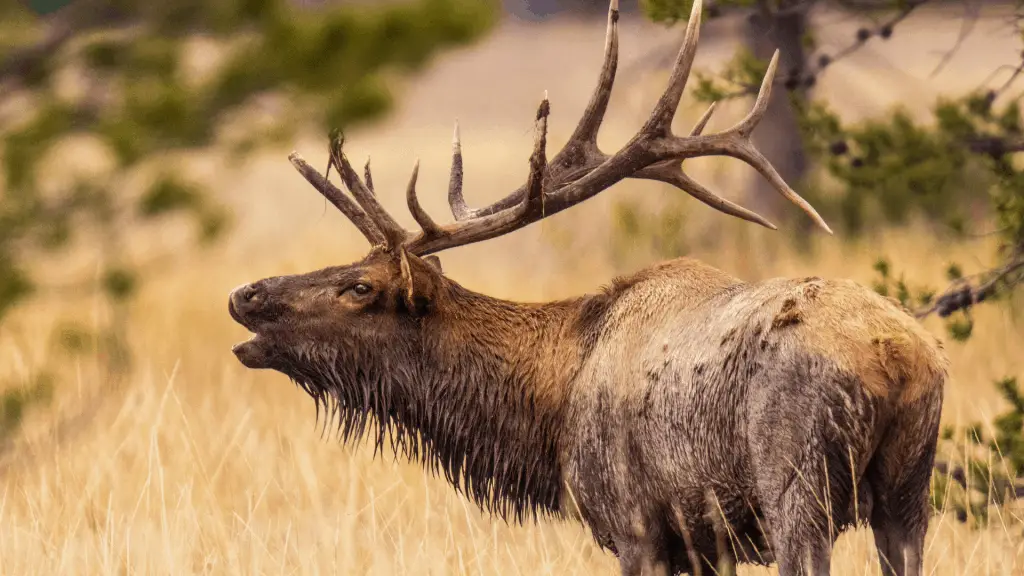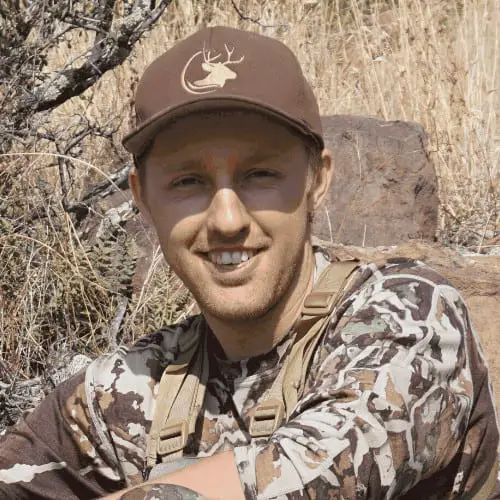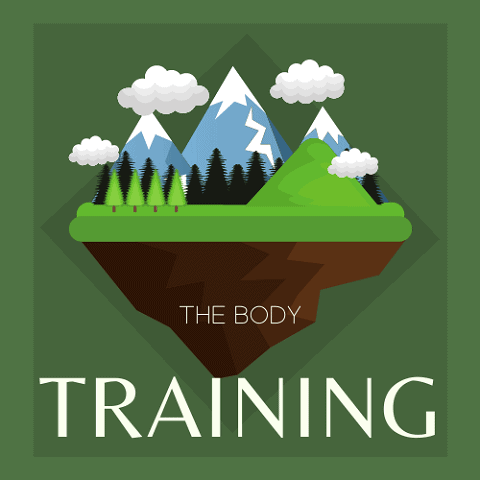Fact checked by Steven Lines, lifelong Hunter and Outdoorsman .
.
You never want to alert your prey because the hunt will become much more challenging once they sense your presence. But what to do when you inadvertently get discovered? It happens to the best elk hunters. When that happens to you, you should know a few things. Like, how far do elk run when spooked?
The good news is that elk like to stay in one area during the rut. If you managed to spook your elk, it wouldn’t run so far that it escapes you entirely. Dogged determination will almost always help you catch up and hunt your elk. Give them some space, and they’ll return.
This guide is for you if you need to know how to handle spooked elk. It’ll show you when a spooked elk will run, how far, and more importantly, whether you should pursue them if they run.
When you spook an elk, all hope isn’t lost. As a hunter, you should chase your kill. After all, elks don’t want you to hunt them. In rare cases, you just need to let go. So, here’s the whole story.

In this post, we'll cover:
Will Spooked Elk Run?
Elk will run when spooked. They’ll eventually return to the same area as well. If they identify your smell, it’ll be near impossible to catch them again. Since they have sensitive olfactory nerves, they’ll sense you even before you know they’re there. And they’ll be gone.
Your best bet against their super sensitive snout is to play the wind in your favor. A strong wind will obscure your odor, so it’ll be hard to detect you. An effective stalking strategy is understanding the wind patterns in the area.
Elk will associate your odor with danger and run once they sense your presence. According to Mark Skousen of Elk101.com , it’s best to avoid detection in the first place.
, it’s best to avoid detection in the first place.
Otherwise, unless you’re physically prepared, it’s a losing battle. Elks cover a lot of distance daily by their nature. It’s simply impossible to keep up with a spooked elk. In that regard, they have the upper hand (or hoof!)
The thing is, what if you triggered an elk stampede? He won’t run by default when you’re hunting a solitary elk. You have to mess up badly to make an elk run. Like, as you took a wrong shot and wounded them or scared them with a failed ambush attack.
Elks are curious animals to their own detriment. They might get too close to identify what you are. Even more, if you stay motionless and look non-threatening to them, they might ignore you altogether.
But when you take a wrong shot at one herd, it’ll start running. And the pack will follow. They don’t know why they’re running. Only the one you shot knows, but they’re herd animals and will mirror each other.
How Far Do Elk Run When Spooked?
Elk will run as far as they can when spooked. But usually, they return to their bedding area. In that case, you don’t want to pressure them. Let them cool down.
Be careful because breaking into their “safe area,” elks will delve deeper into the forest, and it’ll be impossible to find them. Don’t let them detect you anywhere near this area. Likewise, don’t hunt or call near your camp. If they notice your base, they’ll instinctively know you’re up to no good.
Elks don’t enjoy human company in general. The minute they hear a truck approaching, they’re gone. Plus, they tend to go as far as possible from civilization. Years of elk hunting taught them that humans are bad news.
So, when hunting elk, assume they’re already spooked. For that reason, you need to understand elk’s behavior when they’re nervous.
During the rut, elks travel in groups . The bull seems to be the leader of the herd. But there’s usually a leader cow who’s really in charge. The lead cow decides where to go, when to feed, where to drink, etc. She’s the one calling the shots. The bull must prove himself as the biggest and strongest by chasing other competing bulls.
. The bull seems to be the leader of the herd. But there’s usually a leader cow who’s really in charge. The lead cow decides where to go, when to feed, where to drink, etc. She’s the one calling the shots. The bull must prove himself as the biggest and strongest by chasing other competing bulls.
If you’re targeting the bull, you need to watch for this matriarch. But if you’re hunting a lone bull. He’ll be on the herd’s trail. He tries to challenge the “leader bull” and take over the herd of cows.
All in all, it’s difficult to isolate the main bull from the herd. He’s already following his harem during the mating season. That’s also why he’ll never come out no matter how much you call. Why would he? As far as he’s concerned, he follows the big cow.
Furthermore, the lead cow will lead the bull away from the perceived competition when you keep calling.
Again, it’s best practice to stalk the lead cow unless you’re stalking a trophy bull. Because the other bulls trying to mate will be following the herd. Whenever you can find the pack, look for those bachelor bulls. They’re relatively more straightforward to hunt than the big bull, even though some of them are stronger than him.
Will Spooked Elk Return?
If you’re hunting without a guide or outfitter, scout the area yourself. Elk are always on the move. Finding them in some area doesn’t mean you’ll find them in the same place a few days later. Scout the area before the hunt to get an idea.
An elk hunting truism is, “go where the grass is.” But some elk hunters would add, “go where the water is.”
For the elk, it’s a risk to return to the same area where they encountered a hunter. You’ll need to follow them from a distance after the encounter. Unless they’re mortally afraid of you, they’ll return. Hopefully, they aren’t spooked enough to flee the area entirely.
It’s not like they’ll forsake the area forever. But there are a lot of other regions they can escape to. The law of nature is when you chase something; it tends to get away from you. When you spook your elk, back off, don’t keep pressuring them, or you’ll chase them even farther. There are cases when you want to keep the pressure, as explained later.
For now, just scout another area. Elk don’t have a strong memory, but they learn from experience. They’ll return when they feel safe. Like, when nobody is threatening them. So, try going back two nights later. If they’re going to return, they’ll do it at night.
They’re herd animals that feel safe together. So, your herd is more likely to return when there’s no sign of danger. Back off a little, and give them more space before you try again. They’re also familiar animals, and they’ll stick to the places they know, especially where they find food and water.
Should You Wait, Or Go After Him?
When trying to relocate your elk, use the same tracking methods for locating elks:
- Game trails
- Elk tracks around water sources
- Droppings
- Elk beds
- Wallows
- Broken saplings
- Fresh rubs
- Smell of elk
Generally, your chance of catching the bull decreases when you keep pressuring him. If the herd is on the move, they’ll just keep moving. So, if you spooked them, they scattered and ran in every direction. You had struck the leader.
If they get separated, it’s easier to hunt them down. If elk don’t re-gather, they’ll continue wandering. And you should focus on one elk and avoid getting distracted. When they run as a group and escape you, keep chasing them from a distance.
Do it if you’re prepared to follow the bull deep in the woods. Because when spooked, the bull will get farther to where it’s safe. The more remote it gets, the more complex the stalk will be. The elk strategy is getting you exhausted from the chase, and he hopes you’ll give up eventually.
By the time they feel safe again, they’ll have traveled a great distance in remote elk country. If you managed to travel all that distance, hunting the bull wouldn’t be your primary concern. But you’ll be thinking more about returning. And if you manage to make a kill, it’ll be pretty difficult to return all that distance with your kill.
Unless you want that trophy bull, you don’t need to go after him. Perhaps, you should keep hunting in another area. Look for another kill.
That’s why you should plan for these scenarios before the hunt. To Dirk Durham of Elk101.com, “the #1 biggest mistake many elk hunters make is not having backup plans. ” So, have a Plan B for this situation. Is it worth going after that particular bull, or better to keep hunting elsewhere?
” So, have a Plan B for this situation. Is it worth going after that particular bull, or better to keep hunting elsewhere?
Conclusion
If you wait for an elk to return, don’t wait too long because your time is limited as it is. The chance of returning to the same area is slim, either way. Don’t go after him beyond the distance you’ll need to cover coming back. Find another place and stalk another herd. There are plenty of elk in the woods, especially during the rut.

Steven Lines is a hunter and outdoorsman from Safford, Arizona, USA. Since he was a child, he has been hunting and fishing and has over 20 years of outdoor experience. Steven works as a hunting guide in Arizona during his spare time and runs a Youtube channel dedicated to sharing his outdoor adventures with others.
dedicated to sharing his outdoor adventures with others.
